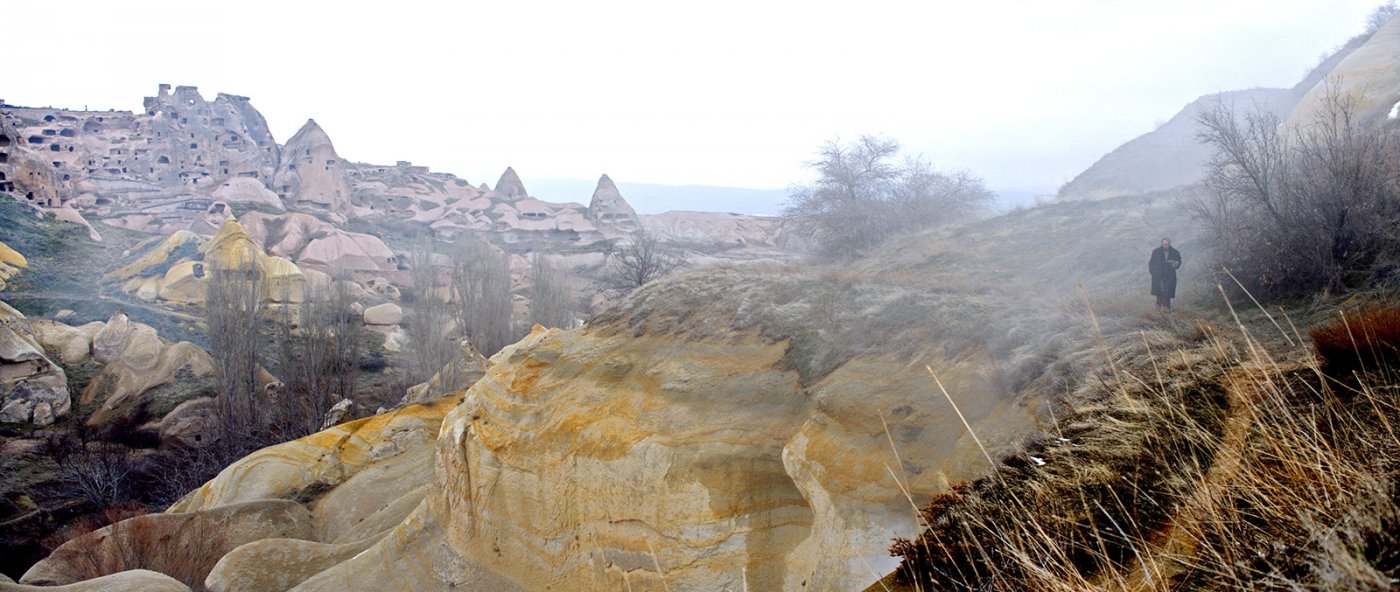The rustic hotel at the heart of Winter Sleep is a strikingly unfamiliar place: Located somewhere in Turkey’s Anatolian countryside, perched on a rocky slope, the buildings seem to emerge directly from the stone of the hillside itself. The cave-like setting might suggest we have not evolved very far from our primitive ancestors, an implication supported by the film’s portrait of psychological cruelty and selfish behavior. In the course of 196 slow minutes, we discover the world of Aydin (Haluk Bilginer, from Rosewater), who inherited the inn and is now running it after working as an actor for many years. He also inherited a bunch of local rental properties, the income from which allows him to sit around penning op-ed newspaper essays while washing his hands of the economic woes of his tenants.
Director Nuri Bilge Ceylan’s previous film was Once Upon a Time in Anatolia (2011), one of the best movies of the decade thus far. Although Winter Sleep won the top prize at Cannes this year, Ceylan isn’t quite at that level in this outing. He does retain his uncanny eye for landscapes, a rich talent for getting the most out of actors, and a novelist’s grasp of how small incidents can open up an entire world—in this case, the small incident is a child throwing a rock at Aydin’s truck. The rock breaks some window glass, but it also begins the process of cracking apart Aydin’s arrogant sense of life. The kid isn’t around much, but he witnesses some of the film’s most devastating moments, including the humiliation of his responsible uncle (Serhat Kilic) because of the family’s debt to landlord Aydin.
After a brilliant opening hour, Ceylan falls out of rhythm—he has cited the influence of Chekhov on this film, but Chekhov kept the drumbeat and the humor going. Two extremely long and talky sequences dominate the middle of Winter Sleep: Aydin and his sister (Demet Akbag) calmly engaging in a duel of mutual laceration; and Aydin and his younger wife (the superb Melisa Sozen) arguing over her charity work—he insists on “helping” her with things she desperately needs to do herself. Those scenes are precise and well observed, but the film has a hard time finding its stride again. If it fails to finish as strongly as it began, Winter Sleep nevertheless collects a series of haunting moments and unflinching exchanges. It’s not as great as it wants to be, but it doesn’t miss by much.
film@seattleweekly.com
WINTER SLEEP Runs Fri., Jan. 2-Thurs., Jan. 15 at Grand Illusion. Not Rated. 196 minutes.







